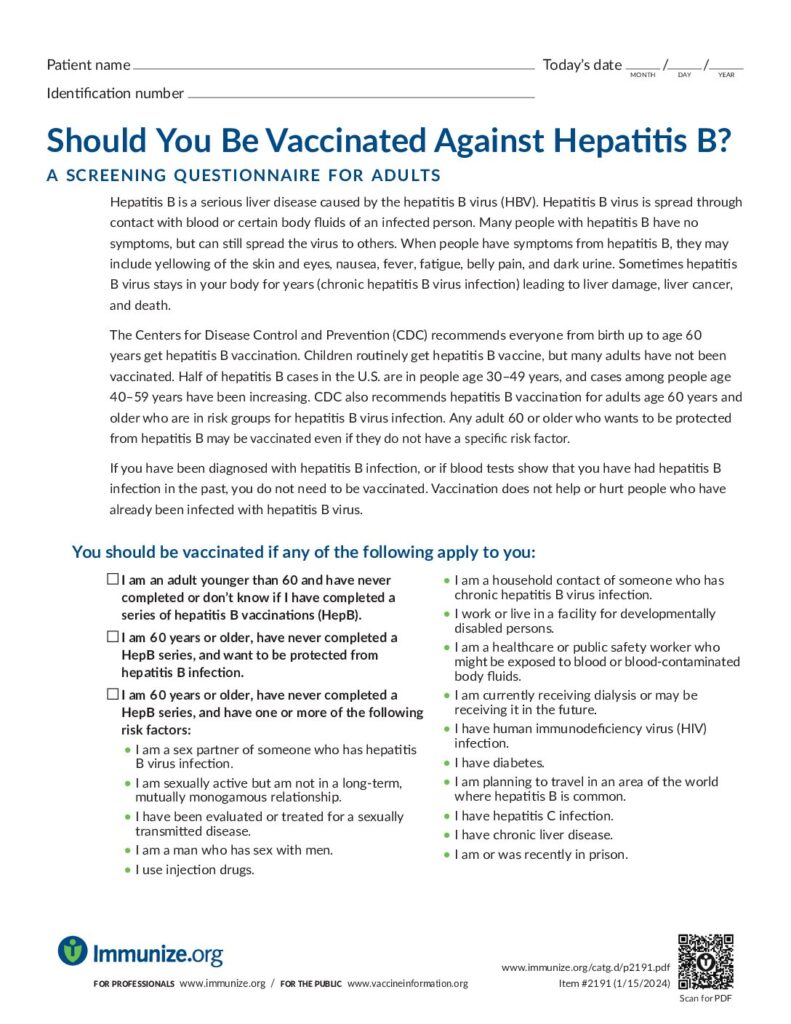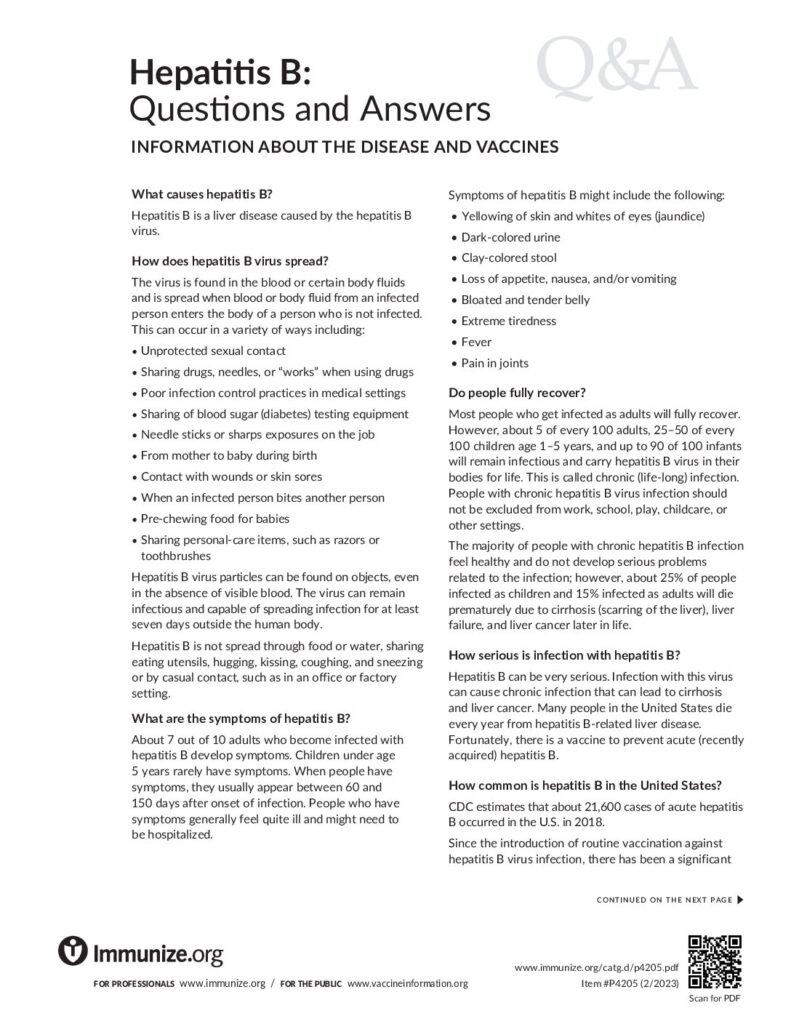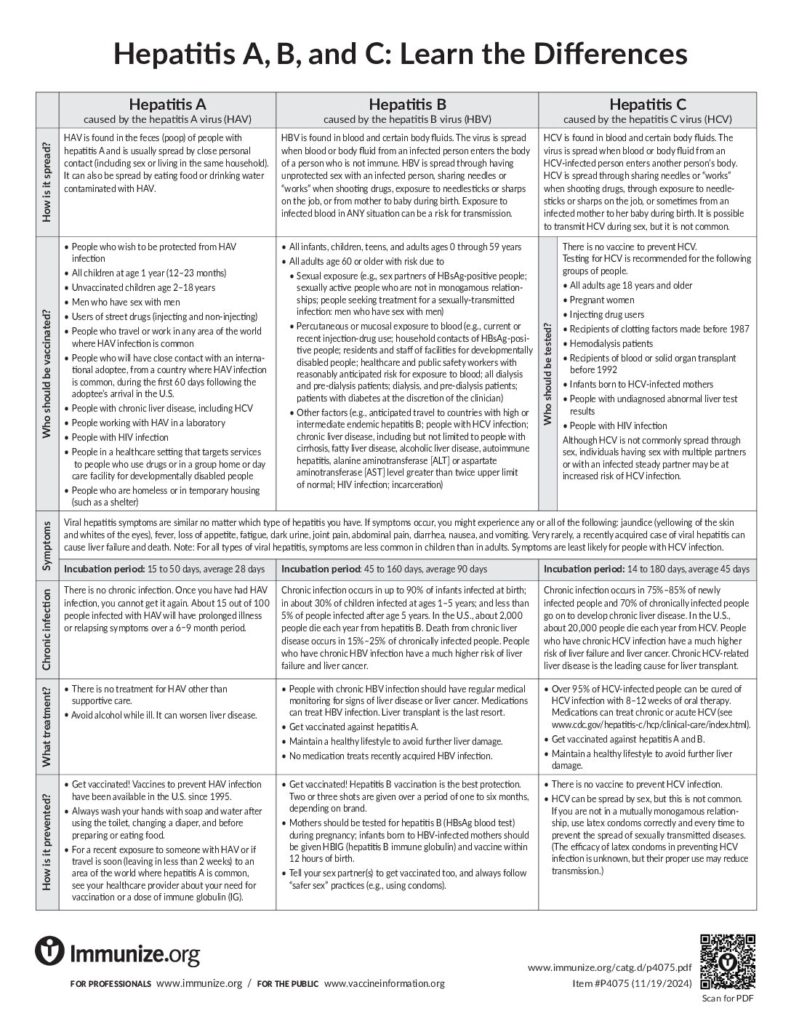Overview
- Hepatitis B is a serious liver disease caused by a virus.
- You can get infected with hepatitis B if you have contact with an infected person’s blood or other body fluids. This can happen during sex, or just by sharing personal items like a toothbrush or razor. Babies can get infected from their mother during birth.
- If you get infected, you can be sick for weeks or months, be hospitalized, and even die. Some people don’t feel sick but can still spread the virus to others. For some people, the virus remains in their body for years. During this time, the virus can attack the liver and cause serious problems like liver failure or cancer.
- You are more likely to become infected with the virus if you have diabetes, are exposed to blood on your job, have sex with an infected person, travel to certain countries, or use recreational drugs. However, many people are not sure how they got infected.
- Vaccination is the best way to prevent hepatitis B.
Hepatitis B Vaccine Schedule
All children and teens in the U.S. should get 3 doses of hepatitis B vaccine. Infants should receive the first dose within 24 hours of birth. All adults through age 60 who have not previously been fully vaccinated should be vaccinated with 2 or 3 doses (depending upon brand). Adults age 60 and older who want to be protected from infection or who are at risk of hepatitis B should also be vaccinated.
RESOURCES
Should You Be Vaccinated Against Hepatitis B?
A checklist of reasons for getting the hepatitis B vaccine, from Immunize.org.
Hepatitis B: Questions and Answers
Hepatitis B disease and vaccine information, from Immunize.org.
Hepatitis A, B, and C: Learn the Differences
Information on symptoms, risk factors, prevention, treatment, and more, from Immunize.org.
Partner Resources
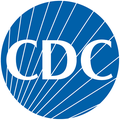
Fact sheets, resources, multimedia, and more for parents and children from the Centers for Disease Control and Prevention.

Three doses of the hepatitis B shot are recommended for children by doctors as the best way to protect against hepatitis B. Learn more about meningococcal and vaccines from CDC. A Spanish-language version is also available.

Find easy-to-understand vaccine information for yourself or your loved ones, from the Department of Health & Human Services.

Questions and answers about hepatitis B and vaccines from the Vaccine Education Center at the Children’s Hospital of Philadelphia.
Physician Underscores the Importance of Hepatitis B Vaccine
My name is Keith Van Zandt, and I appreciate the opportunity to address this committee regarding hepatitis B vaccines.
Read more.Hsu Family
In the space of three years, college junior Leslie D. Hsu lost her brother and mother to hepatitis B-related liver cancer.
Read more.Adrian Elkins
Adrian’s sister writes about her brother’s death and his siblings’ determination to educate the public about hepatitis B.
Read more.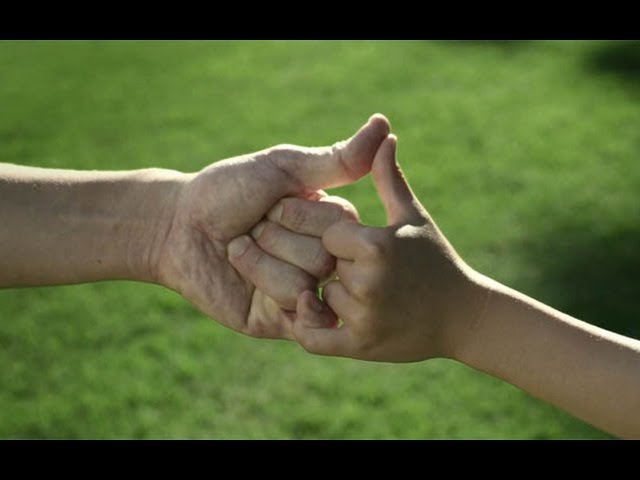
Family Promise: Get Tested for Hepatitis B
This digital story shows a father-daughter bonding moment as a father teaches his daughter how to play golf. His family is important to him and he promises his wife and daughter that he will get a blood test for Hepatitis B. Nearly 2 in 3 Asian Americans don’t know they are infected, but getting tested for Hepatitis B can help people care for themselves and protect their families. This video is part of CDC’s multi-lingual Know Hepatitis B campaign, conducted in partnership with Hep B United.
People of any age can feel a bit anxious about getting a shot. Some may be so anxious that they avoid vaccination…even when they know it’s important. Learn more about simple ways to help any child or adult feel better and more confident when getting vaccinated.
